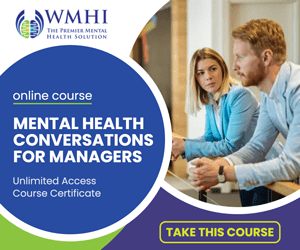Did you know that according to the National Center for Health Statistics (2019), 8.8% of children in the United States aged 3-17 years old are diagnosed with ADHD and that this percentage is constantly increasing all throughout the years? This increase in diagnosis means that people are becoming aware of ADHD but it seems like the ‘awareness’ is still a work in progress as evidenced by the prevailing stigma, labeling, and discrimination among people with ADHD. We put an end to the stigma by increasing awareness. People with ADHD are more than just ‘trouble-makers’ and ‘class clowns’ and their behavior is completely unintentional.
What is Attention-Deficit Hyperactivity Disorder?
It is common for children to get easily distracted and highly active in classrooms but when this hyperactivity and inattentiveness becomes unusual, frequent, and impairs the child from functioning effectively, then the children might have ADHD.
ADHD or Attention-Deficit Hyperactivity Disorder is a psychological disorder characterized by inattention, hyperactivity, and/or impulsivity (Rosenberg and Kosslyn, 2011). There are three types of ADHD: the hyperactive/impulsive type, the inattentive type, and the combination of the two. ADHD typically arises in childhood although some are diagnosed in their adulthood and is more prevalent among children especially among boys. ADHD is formerly known as ADD or Attention-Deficit Disorder. Today, ADD is just one type of ADHD with no symptoms of being hyperactive.
Children with ADHD are oftentimes labeled as ‘trouble-makers’ because their hyperactivity gets them into lots of trouble, oftentimes with parents, classmates, and teachers. Children with ADD, on the other hand, are ‘daydreamers’ and they are those who find focusing an impossible task. The behaviors of these children are unintentional. They just couldn’t help but be impulsive and inattentive because of their ADHD.
Signs and Symptoms of ADHD
ADHD symptoms revolve around hyperactivity/impulsivity and inattentiveness. To what extent do hyperactivity and inattentiveness need to be for the child to be diagnosed with ADHD?
According to the website of the American Psychiatric Association, children with ADHD with the attentive type don’t pay close attention to details, have problems staying focused, do not seem to listen when spoken to, forget daily tasks, easily get distracted, have problems organizing tasks, and often lose things. Those who have the hyperactive/impulsive type, on the other hand, find it difficult to stay seated, always on the go, talk too much especially when they play, tap hands or feet, and interrupt other people. You can already surmise from these what symptoms does the combination type has.
Causes: What led them to have ADHD?
Psychological disorders are oftentimes caused or triggered by three factors: neurological, psychological, and social. Each of these factors contributes to the development of ADHD among children.
Rosenberg and Kosslyn (2011) have supported the idea that ADHD is a result of impaired frontal lobe functioning. Some researchers believe that ADHD is hereditary and blame it on the genes inherited by the children from their parents. However, it is the social factor or the environment of the children that greatly determines whether a child will develop ADHD or not. Most children with ADHD have parents who are neglectful and only notice the bad behaviors of their children and not the good ones. This will make the children be more hyperactive and inattentive because they believe that their parents only notice them when they are being disruptive.
Many psychological disorders actually root back in childhood. Unpleasant and traumatic childhood experiences when repressed will, later on, develop into mental health problems in adulthood. This is also the case in ADHD. Parents play an important role because they are the ones raising the child.
Psychological/ Mental Impacts
You might think that ADHD is a great burden to the family than the person with the disorder but this isn’t true. Like any other mental health problem, the person with the psychological disorder is affected by her disorder as greatly as to how it affects her family or even greater because she is the one being haunted by the heavy emotions she’s feeling.
ADHD often comes with depression, anxiety, sleep disorder, and substance abuse. Depression and anxiety are the most common psychological effects of ADHD and are the results of social isolation, decreased scholastic performance, dropping out of school, and poor functioning because of inattentiveness.
Strategies for Teachers and Parents
Children and adults who have ADHD need help from their families or teachers. They can’t manage themselves alone because they cannot disable their hyperactivity and inattentiveness nor control them.
An article in verywellmind.com offers strategies that can possibly help children manage their ADHD symptoms inside the house or the classroom. It is best to limit distractions for those with inattentive ADHD because too many distractions around them can trigger or worsen their inattentiveness. Providing frequent feedback and rewarding good behaviors can also help according to the article. We have said earlier that most children with ADHD have neglectful parents who only notice their children when they are being disruptive so it’s best not to do that, instead notice more their good behaviors. Emotional support is the most important thing to give to people with ADHD. Do not make them feel bad because they have ADHD. Provide encouragement when they fail and companion when they feel isolated.
Therapies for ADHD
There are three therapies for ADHD as enumerated in an article from healthline.com. All of these focus on addressing the bad behavior and negative feelings that come along with ADHD. The first one is Psychotherapy which aims to help children form better peer relationships and help them open up about their feelings on coping up with ADHD. The second one, Behavior Therapy, will eliminate unwanted behaviors and strengthen positive behaviors. The third one, which is Cognitive Behavioral Therapy, aims in eliminating demoralizing thoughts that people with ADHD have with themselves which will then change how they behave.
To those with ADHD
ADHD when seen negatively will affect a person negatively. Think of ADHD as a gift, as a superpower. Perhaps you’ve read Rick Riordan’s Percy Jackson series where ADHD is seen as a sign that a person is a child of a Greek god. In this book, the disorder is seen as a superpower that could help them fight off monsters. ADHD enables them for something greater and spectacular. It’s what makes them stand out among the rest.
Final thoughts
There’s more to ADHD than just the label ‘trouble-makers’. There are underlying factors that make these people behave the way they do and these behaviors are unintentional. Increasing awareness about Attention-Deficit Hyperactivity Disorder can help those with the disorder get support not only from their family but also from other people. End the stigma. Embrace diversity.
References:
* National Center for Health Statistics. (2019). Attention Deficit Hyperactivity Disorder. Centers for Disease Control and Prevention.
* Rosenberg, R.S. & Kosslyn, S. M. (2011). Abnormal Psychology. Worth Publishers.









